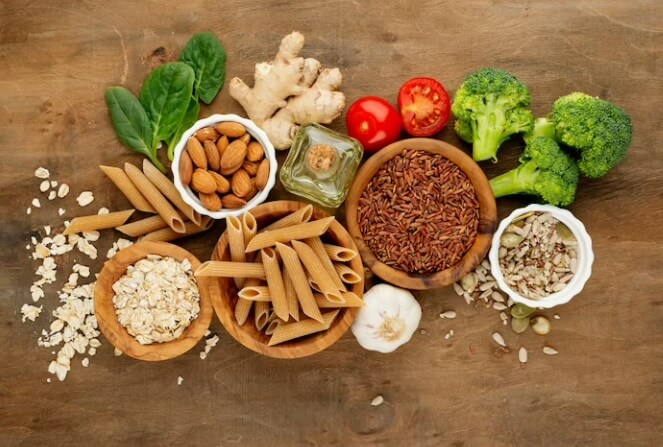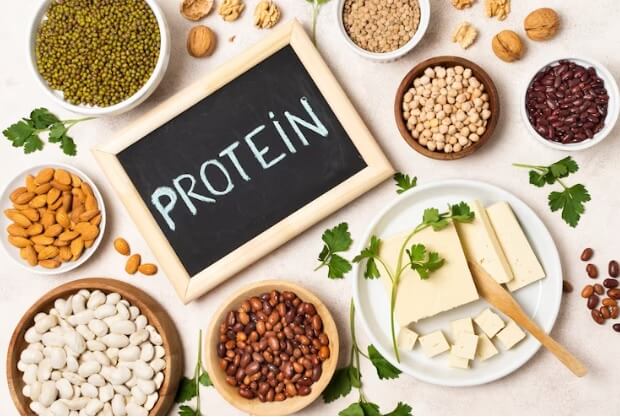Cardiovascular disease, commonly known as heart disease, encompasses a range of conditions that affect the heart. These conditions include problems with the blood vessels, structural abnormalities, and the formation of blood clots.
Here are some key factors to be aware of cardiovascular disease:

1) Types of Cardiovascular Diseases:
- Coronary Artery Disease (CAD): CAD, also known as coronary artery disease, is a common form of heart disease. The accumulation of plaque (atherosclerosis) in the coronary arteries, impacts the heart muscle.
- Heart failure: The inability of the heart to pump blood effectively may be due to either weakened heart muscles or the stiffening of the heart chambers.
- Cardiac arrhythmias: These heart rhythms aren’t consistent and can affect the heart’s ability to pump blood effectively.
- Valvular Heart Disease: Blood flow within the heart can be affected by damage or defects in the heart valves.
- Peripheral Artery Disease (PAD): PAD occurs when plaque accumulates in the arteries outside the heart, usually in the limbs, and decreases in blood flow.
2) Risk factors:
- Modifiable risk factors: These factors can be controlled or changed, like having high blood pressure, high cholesterol, smoking, not being physically active, being overweight, and having diabetes.
- Non-Modifiable Risk Factors: These factors are within our control and can be altered, such as having hypertension, elevated cholesterol levels, smoking, lack of physical activity, being overweight, and having diabetes.

3) Causes:
- Atherosclerosis, a condition characterized by the buildup of fatty deposits (plaque) on the inner walls of arteries, is commonly linked to cardiovascular diseases. This accumulation of plaque leads to the narrowing and hardening of the arteries.
- Risk factors play a significant role in the development of atherosclerosis and other health issues that may eventually lead to cardiovascular diseases.
4) Symptoms:
Cardiovascular diseases can have different symptoms depending on the specific condition. Some common symptoms may include chest pain or discomfort, shortness of breath, experiencing fatigue, dizziness, palpitations, and swelling in the legs or abdomen.
5) Diagnosis:
To diagnose a condition, doctors usually rely on a combination of factors such as the patient’s medical history, a physical examination, blood tests, imaging studies such as electrocardiograms, echocardiograms, and angiograms, along with other specialized tests.
]]>HIV/AIDS is a global problem, affecting many lives since its discovery in the 1980s. Despite progress, misconceptions and biases persist. This blog aims to explore HIV/AIDS, covering its origins, transmission, prevention, treatments, and recent research.
Common myths about HIV:
1) Casual Contact Myth:
Myth: HIV spreads through casual contact.
Fact: You can’t catch it by giving hugs, shaking hands, or sharing utensils.
2) Kissing Myth:
Myth: You can get HIV through kissing or saliva.
Fact: HIV can’t spread through kissing or saliva.
3) HIV vs. AIDS:
Myth: HIV and AIDS are the same.
Fact: If HIV is left untreated, it can progress to AIDS. However, it’s important to note that not everyone who has HIV will develop AIDS.
4) Group Affiliation Myth:
Myth: Only certain groups get HIV
Fact: Engaging in risky behaviors puts anyone at risk
5) Death Sentence Myth:
Myth: Having HIV used to be considered a death sentence.
Fact: With treatment, HIV is manageable, allowing a healthy life.
6) Public Facilities Myth:
Myth: You can catch HIV by using public facilities.
Fact: This is not transmitted through toilets and swimming pools.

1. HIV (Human Immunodeficiency Virus):
Definition: HIV is a virus that attacks the immune system, specifically targeting CD4 cells (T cells), which help the immune system fight off infections. If left untreated, HIV can lead to the disease AIDS.
Transmission:
HIV is primarily transmitted through unprotected sex, sharing contaminated needles, from an HIV-positive mother to her baby during childbirth or breastfeeding, and rarely through blood transfusions or organ transplants (now uncommon due to screening procedures).
Symptoms:
In the initial phase of HIV infection, people might go through symptoms similar to the flu. However, HIV often advances without any noticeable symptoms. As the immune system weakens, more severe symptoms and illnesses can occur.
2. AIDS (acquired immunodeficiency syndrome):
Definition: AIDS is the advanced stage of HIV infection. It is characterized by severe damage to the immune system, making the person susceptible to opportunistic infections and certain cancers.

Criteria for diagnosis:
When a person’s CD4 cell count falls below a certain level or when they experience certain opportunistic infections or cancers that occur in association with advanced HIV disease, a diagnosis of AIDS is made.
Symptoms:
- AIDS defines several symptoms, such as significant weight loss, persistent diarrhea, frequent fevers, and infections such as tuberculosis and pneumonia that take advantage of a weakened immune system.
While home remedies may offer temporary relief, they should not replace professional medical advice. If you have a cold and fever, it is best to consult a healthcare professional, especially if symptoms persist or worsen. However, here are a few home remedies that may provide some relief.
Here are some home remedies :
1. Rest:
Give your body the necessary time to recover by getting enough rest. By doing this, your immune system can concentrate on combating the infection.
2. Stay Hydrated:
It is essential to maintain hydration by drinking plenty of fluids such as water, herbal teas, and clear broths. Staying hydrated can help soothe a scratchy throat and prevent dehydration caused by fever and excessive mucus production.
3. Warm Salt Gargle:
You can ease a sore throat and reduce irritation by gargling with warm water and salt. Firstly, combine approximately half a teaspoon of salt with a glass of warm water.

4. Humidify the Air:
Use a humidifier in your room if the air is dry. Having moist air through can help with nasal congestion and soothe your irritated throat.
5. Over-the-Counter Medications:
Over-the-counter drugs like Paracitamol or Nicip Plus can be used to lower fever and muscle pain. It’s crucial to follow the recommended dosage and consult with a healthcare professional, especially if you have any existing health conditions.
6. Honey and Lemon:
A warm water concoction of lemon and honey can be soothing for a sore throat and give you some relief. Just remember, honey is not suitable for children under one-year-old.
7. Steam Inhalation:
Breathing in steam is a great way to relieve a stuffy nose. You can do this either sitting in a steam-filled bathroom or using a humidifier.
8. Chicken Soup:
Chicken soup has been proven to possess gentle anti-inflammatory properties and can offer hydration and nourishment. Additionally, it might aid in relieving congestion.
9. Hot or Cold Packs:
A warm compress on your forehead or neck can relieve headaches and lower fever.
10. Maintain Good Hygiene:
Make sure to wash your hands frequently to stop the virus from spreading. Remember to use tissues when you cough or sneeze and throw them away carefully.
]]>Music has the power to influence our emotions and physiological responses, and many people find that listening to music can be an effective way to reduce stress. Here are some ways in which music can help in stress reduction:

Music possesses an extraordinary capacity to relieve stress and induce a feeling of tranquility.
Listening to fast music can boost alertness and concentration. Upbeat music can improve mood and optimism, while slower tunes calm the mind and relax muscles, reducing stress. Music is widely known for its relaxation and stress management benefits.
1) Relaxation and Mood Enhancement:
Certain types of music, such as classical music, ambient, or slow melodies, can have a calming impact on the body and mind. It has the power to uplift your spirits, alleviate stress, and induce a state of tranquility.
2) Distraction:
Listening to music can help take our minds off of stressful thoughts and situations. When we engage with music, it can shift our attention away from stressors, giving us a temporary break from them.
3) Stimulation of Positive Emotions:
Listening to cheerful and inspiring music has the power to activate neurotransmitters such as dopamine, which are associated with feelings of joy and positivity. As a result, this can counterbalance the effects of stress hormones like cortisol.

4) Reduced Muscle Tension:
Listening to music has been proven to have a tangible impact on the body, as it helps to relieve muscle tension. These are particularly beneficial for those who encounter physical symptoms caused by stress, like muscle tightness.
5) Regulation of Breathing and Heart Rate:
Entrainment, also known as the synchronization of our body’s natural processes with the rhythm of music, occurs when slow and melodic tunes can regulate our breathing and lower our heart rate, resulting in a tranquil state of mind.
6) Expressive Outlet:
Playing or creating music can serve as a means of self-expression and a way to release emotions. It can be especially advantageous for those who utilize music as a channel to convey and express their innermost feelings.
7) Mindfulness and Meditation:
Many individuals utilize music as a soothing accompaniment for mindfulness or meditation, finding that specific genres with their soothing rhythms can greatly enhance the practice and alleviate stress.

8) Social Connection:
Engaging in shared music experiences fosters connections and deepens our sense of belonging. Whether enjoying music with others or actively participating in group performances, these activities promote unity and solidarity, ultimately leading to increased happiness and well-being.
Personal preferences impact music choices, as what suits one person may not suit another. Exploring different genres helps individuals find the music that brings them the most stress relief. Music is often used in conjunction with other stress management techniques.
]]>Yoga, a practice that originated in ancient India, has become widely popular across the globe due to its countless advantages for the mind, body, and emotions. Let’s take a closer look at some of the main benefits of practicing yoga:

1) Physical Health:
- Flexibility: Yoga involves a variety of poses and stretches that improve flexibility, boost joint mobility, and reduce the risk of injuries.
- Strength: Numerous yoga positions demand the activation of different muscle groups, which helps to build general strength and stamina.
2) Mental Well-Being:
- Stress Reduction: By incorporating deep breathing, meditation, and physical movement, yoga is an excellent way to reduce stress levels and discover inner tranquility, fostering a sense of calmness and relaxation.
- Mindfulness: Yoga promotes mindfulness, which means being fully present in the moment. Doing this can enhance your ability to concentrate, stay focused, and be more aware of your surroundings. Moreover, incorporating yoga into your routine can foster emotional stability and a brighter outlook on life.
3) Respiratory Benefits:
- Breathing Techniques (Pranayama): Yoga includes different breathing exercises that boost respiratory function, enhance lung capacity, and improve breathing patterns in general.

4) Cardiovascular Health:
- Low-Impact Exercise: Some types of yoga, although not intense, can still benefit your cardiovascular health, particularly those that include flowing movements or dynamic sequences.
5) Pain Management:
- Back Pain Relief: Yoga is very effective in relieving chronic lower back pain. Some specific poses and stretches can help ease tension and enhance the health of your spine.
- Joint Health: Regularly practicing may assist in managing pain linked to conditions like arthritis by enhancing joint flexibility and diminishing inflammation.
6) Better Posture and Increased Body Awareness:
Positioning: Yoga focuses on correct body alignment during poses, which can help enhance posture and increase body awareness in everyday tasks.
7) Sleep Quality:
- Chill Out Methods: The relaxation and meditation components of yoga can help improve the quality of sleep, aiding individuals in managing insomnia or sleep-related issues.
8) Boost Your Immune System:
- Relaxation Techniques: Yoga can help boost your immune system and improve your overall health by reducing stress and promoting relaxation.
9) Community and Social Connection:
- Classes for groups: Joining group yoga sessions helps create a feeling of togetherness and social bonding, offering emotional encouragement and inspiration.
10) Life Balance:
- Work-Life Balance: Adding yoga to your daily routine can help create a more balanced and harmonious lifestyle, making it easier to handle stress from work.

Everyone’s experience with yoga can vary based on factors such as the type and frequency of practice, as well as personal health conditions. If considering starting yoga or any new exercise routine, it’s advisable to consult healthcare experts, especially if there are existing health issues.
]]>Teenagers below 19th age face many serious and minor issues daily because it’s the time of their growth and learning period. During adolescence, young people encounter various difficult obstacles both within themselves and in their surroundings.
- Bullying
There are three characteristics intention, repetition, and power are typically used to identify bullying.
- Intention Bullying: In this, the bullied by physical harm, harm by words and behavior.
- Repetition Bullying: In this, the paper examines adolescent’s perceptions of bullying and of the different forms it takes, and whether these perceptions vary according to the teen’s role of victim, aggressor, or witness in a bullying situation.
- Power Bullying: In this, Power bullying is bullying on who is less strong, different in body size, and who is powerful students.

- Fear of Failure
The fear of academic performance is a common experience among students, regardless of whether they are in primary or high school.
Due to their fear of being ridiculed by their peers, some students tend to underperform academically, resulting in them being ranked last in the class.
This fear of judgment from others causes them to miss out on progressing to the next grade, ultimately leading to societal perception of them as failures.

- Academic Pressure
In the current era of intense competition, students find themselves under immense pressure. Academic institutions have become a breeding ground for stress as students constantly feel overwhelmed by the cutthroat competition.
Avoid comparing your goals and accomplishments with those of your friends. Instead, establish your objectives and take pride in your efforts.

- Internet Addiction
Internet addiction refers to an excessive and uncontrolled desire to access the Internet. It involves compulsive behaviors associated with any online activity that disrupts one’s daily routine and causes strain on personal relationships.
This addiction is faster after COVID-19 because now students misuse of Internet in the name of online studies

- Peer Pressure
Peer pressure refers to the phenomenon where individuals within a social group exert influence on one another, encouraging actions that may be met with resistance or would not have been chosen otherwise.
During this modern age, peer pressure has become a prevalent influence where students tend to follow whatever their peer group suggests, regardless of whether it is beneficial for their well-being or not. They often disregard their health and simply think that if they don’t comply, their friends will make fun of them.

Weight Gain Tips For Thin Girl at Home Naturally
Do you feel embarrassment due to your skinny physique? Although losing weight is a dream for many girls, on the contrary it there are also many who are looking for tips to gain weight. If you are slim girl and looking for solution to gain weight naturally, don’t forget to take look on these tips as we shared below.
Read Also: What To Eat During Pregnancy To Have A Beautiful Baby

Eat A Lot Of Proteins: Protein forms the building blocks of your muscles. Eating sufficient protein is required to gain muscle weight instead of just fat. High protein foods include meats, fish, eggs, many dairy products, legumes, nuts, and others.

Add Supplements: We all consume food three times a day in the form of meals. Alongside daily routine eating, using supplements can also be helpful. Eat frequent, small meals throughout the day instead of three large ones. Make sure to eat plenty of fat and carb.

Good Sleep: A good night’s sleep is one of the keys to good health-and may also be a key to maintaining a healthy weight. Getting good quality sleep is equally as important as diet and exercise in regulating our weight. Sleep is very important for muscle growth.

Engaged In Training Exercises: In addition to increasing your calorie intake, it’s important to engage in strength training exercises to build muscle mass. This can help you gain weight in a healthy way. A workout session is essential for anybody, irrespective of age and gender, to keep your body fit and healthy.

Healthy Snacking: Snacking between meals is a common habits among many of us, irrespective of age. Nuts, fruits-veggies, cheese and hard boiled eggs are the perfect snack that you can add in your daily routine in between the meals.

Stay Hydrated: Drink plenty of fluids throughout the day, such as water, milk, fruit juices, must intake banana shake once in a day to gain weight in couple of months.
Gaining a weight is not overnight magic you have stick on your routine and diet plan. Consistency is the key of success and in the process of achieving results don’t forget every single second is count.
]]>How To Lose Belly Fat In Easy Ways
Are you fed up with excess body fat and still struggling to get rid of it. It’s a simple process, but it’s not necessarily easy. It takes some will power and determination to avoid the things that get you fat and patience to work the fat off through following some daily routine habits as shared below.
Visit Also: How To Prevent Eye Infection From Spreading

Create a Calorie Deficit: A person can create a calorie deficit by consuming fewer calories than they need to maintain their body weight. Over time, this calorie reduction can lead to weight loss. Calculate your daily calorie needs and create a calorie deficit by eating fewer calories or increasing your physical activity.

Eat a Balanced Diet: The kind of food you will eat in this period is vital in bringing about any change. Focus on whole, nutrient-dense foods like lean proteins, whole grains, fruits, vegetables, and healthy fats. Limit processed foods, sugary snacks, and high-calorie beverages.

Choose High-Fiber Foods: Proper nutrition will manage your weight loss journey in the right direction. Fiber-rich foods like vegetables, fruits, whole grains, and legumes can help you feel full and satisfied, reducing overall calorie intake.

Stay Hydrated: Losing belly fat is one of the toughest things to do when you are trying to shed those extra kilos that you get through own habits. When you are dehydrated, it becomes difficult for your body to lose weight. Water helps your kidneys to filter out toxins and waste, and help you in maintaining balanced weight. Drink plenty of water throughout the day, Sometimes, our bodies confuse thirst with hunger, so you can set alarm in the gap of 2-3 hrs.

Limit Sugar Intake: Sugar that’s added to processed foods is much more harmful to your health than the natural sugar in whole foods like fruits and vegetables. Minimize consumption of added sugars and sugary beverages, as excess sugar can contribute to fat accumulation, especially around the belly.

Engage in Cardiovascular Exercise: Running is among the finest cardio workouts for reducing belly fat. It’s a wonderful way to burn calories and fat when done at a steady, moderate speed. Regular aerobic exercises like walking, running, cycling, or swimming can help burn calories and promote fat loss.

HIIT Workouts: High-Intensity Interval Training (HIIT) can be effective for burning calories and improving cardiovascular fitness in a shorter amount of time. With HIIT training your body will continue burning calories even when the session is over.
Hard things take time for healthy and sustainable weight loss it will takes time. Focus on making long-term lifestyle changes rather than seeking quick fixes. If there are people in your circle who are looking for losing belly fat help them by sharing this article.
]]>How To Lose Weight Naturally
Weight loss is a common issue faced by people worldwide. While there is no one-size-fits-all solution to weight loss, there are several super-effective weight loss plans that can help individuals lose weight in a healthy and sustainable way. Here we are going to discuss some of the best weight loss plans that have been proven to be effective in helping people lose weight.
Increase the Protein Content in Your Diet

The main reason behind gaining weight is constant snacking even when your body does not need it. You can replace these snacks with sufficient proteins in your diet to keep yourself full for longer hours and at the same time give your body all the nutrients that it needs.
Take Fiber Rich Food

Select five fibrous food of your choice for a week. Store them and eat them throughout the week. Its easy and effective. Fiber helps to slow down the absorption of glucose and thus improves blood sugar level. It gives you a feeling of fullness and bulk up the stool. So the least amount is around 25 gm a day, that is recommended.
Reduce Your Calorie Intake

To lose weight, you need to create a calorie deficit, which means burning more calories than you consume. This can be achieved by reducing your portion sizes, choosing lower calorie foods, and limiting your intake of high-calorie foods like sugary drinks, sweets, and fried foods.
Don’t Stock Junk Food

Junk and processed foods are one of the unhealthiest components in a diet. No munching on junk food (replace with fruits, and nuts – only a handful). If you are obese, try to replace the junk food with special diet plans for obese, to help to lose weight efficiently.
Reduce Sugar Intake

Excessive sugar intake is one of the major reasons of your increasing waistline. The excessive intake of sugar also leads to some major life-threatening conditions like diabetes and heart problems. Give up sugar (substitute with natural sugar like dates, honey, jaggery)
Drink Adequate Water

Drinking plenty of water can help you feel full, reduce your calorie intake, and prevent dehydration. Water helps a lot when it comes to losing weight naturally. Drinking water before the meals reduces the intake of calories. Water acts as the perfect replacement for other beverages, which lead to weight gain.
Regular Exercise

Regular exercise can help you burn more calories, boost your metabolism, and improve your overall health. Aim for at least 150 minutes of moderate-intensity exercise per week, such as brisk walking, jogging, cycling, or swimming. You can also try out yoga for weight loss. Walk for at least an hour everyday.
Take Proper Sleep

Get enough sleep: Poor sleep can disrupt your hormones and lead to weight gain. Aim for 7-9 hours of sleep per night.
]]>